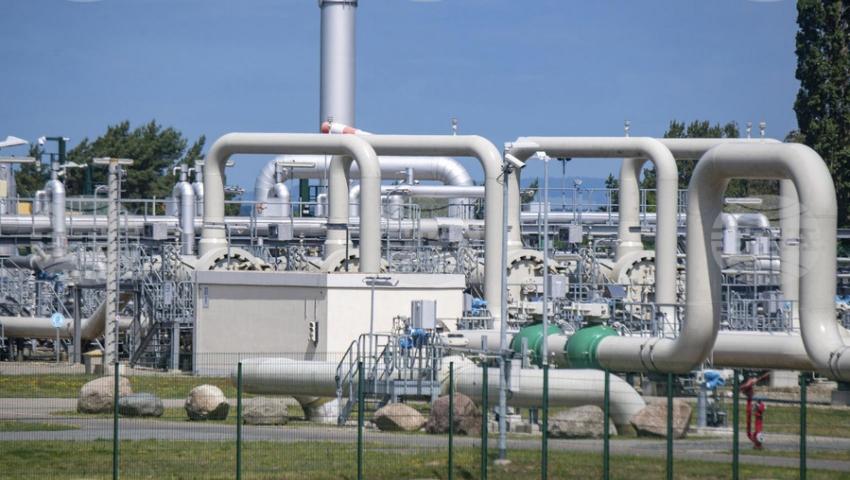We will not ask for a derogation for 15% gas savings until March' 23. Why?
Bulgarian business insisted on a derogation and warned of the bankruptcy of enterprises due to the inability to reduce gas consumption by 15%

Source: BTA, archive
Bulgaria will not ask for a derogation to reduce gas consumption by 15 percent from August to March next year, as proposed by the European Commission last week, BNR reported, citing sources from Brussels.
Today, the energy ministers of the countries in the community are discussing a political agreement on the proposal of the European Commission to reduce gas consumption by 15 percent from August 2022 to March 2023. The measure was proposed by the EC because of the uncertainty of supplies from Russia and the problems, established in 12 member states in this regard. According to the latest proposal, five member states would be needed to trigger an EU-level alert on security of supply, instead of 3 as previously envisaged.
Bulgaria was expected to request a derogation to reduce consumption by 15 percent. This was insisted on by employers' organizations in the country and the organization of large energy consumers BFIEK. According to the business, such a reduction in fuel consumption is unbearable for enterprises in our country, and for a number of companies it is also the main raw material for the production of products.
A separate problem is that there is no reliable information about what quantities of gas, from where and at what prices the government has contracted. And the gas storage in Chiren remains filled at about 41% - very far from the goal set by the EC for a minimum of 80% filling of the gas reserves.
The issue of gas supplies for district heating is also serious, especially for Sofia District Heating. In the absence of gas, the heat supply will stop, and if the forecast for the inclusion of gas consumers in the electricity network is fulfilled, the installations will be overloaded and blackouts are expected due to numerous accidents.
Considering all these factors, the business organizations insisted that a derogation be requested. In open letters to the highest levels of state power, they warned of the danger of multiple bankruptcies of companies due to interruption of gas supplies and emergency shutdown of heat and electricity supply.
However, it turns out that our country will not ask for a derogation to reduce gas consumption, although the EC plan has, however, faced resistance from a number of governments, with some strongly against mandatory cuts and others unwilling to allow Brussels to control their energy consumption.
The meeting will discuss a derogation for the island states - Cyprus, Ireland and Malta, as well as for the Baltic countries, which are connected to the Russian gas transmission network. The situation with gas storage and interconnectors will also be discussed at the meeting of energy ministers.
Belgium has objected to the European plan to reduce gas demand.
The Spanish government opposes forcing consumers and companies to cut gas consumption, arguing that the country has invested heavily in its infrastructure to import and re-export the blue fuel to the rest of the EU.
Poland also opposed the proposal of the European Commission for a mandatory reduction of gas consumption by 15 percent in case of further reduction of Russian supplies, DPA reported.
"We can talk about voluntary mechanisms, we can talk about reductions in individual countries," said Minister of Environment and Climate Anna Moscow. According to her, it is difficult to reach an agreement on a single goal of a decrease in consumption "without knowing what will happen in the winter".
On top of all that, the minister pointed out that the gas storages in Poland "are already almost full". A huge difference with the situation in Bulgaria, which is on the verge of running out of gas, but does not want a derogation. What are the reasons - it is not yet clear.
However, the Slovenian authorities support the European Commission's initiative to reduce gas consumption. And the Irish Minister for the Environment, who is also responsible for energy issues, Eamon Ryan, announced that the proposal to limit gas consumption by 15 percent would not be enough, in view of the ongoing cuts in Russian supplies.
Meanwhile, it became clear that EU member states have agreed on the emergency plan, which aims to reduce the effect of a complete stoppage of Russian natural gas supplies, according to BNR sources in Brussels.
In the amended document, the provisions have been relaxed and there are various exemption clauses from the application of the rules.
The plan envisages a voluntary reduction of 15 percent in the consumption of natural gas in the member countries from August 1, 2022 to March 31 next year.
In addition, a mechanism will be set up that will trigger an EU-wide alert in the event of a large shortage and that will introduce binding savings targets. The watered-down version of the document contained various exemption clauses and the threshold for introducing binding savings targets was also increased.
